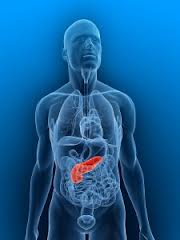 Sugar handling as a term describes the processes the body uses to properly manage carbohydrates eaten in the diet. Difficulties with sugar handling can have a negative effect on the balance between the Sympathetic and Parasympathetic sides of the Autonomic Nervous System, indirectly influencing all other body function. Sugar handling can also directly affect liver function, pancreas function, kidney function, and circulation. While not a direct indicator of disease, Sugar handling issues point to the body’s inability to properly metabolize the carbohydrates in the diet and the need for dietary changes and nutrients to rebalance function. Sugar handling symptoms will display aspects of both Sympathetic and Parasympathetic dominance from time to time, and will usually be marked by headaches, weight gain, and fatigue in early stages and may graduate to more serious indications over time including possible thyroid problems, and diabetes. Many times mental and emotional health can be negatively influenced by the problem arising from sugar handling.
Sugar handling as a term describes the processes the body uses to properly manage carbohydrates eaten in the diet. Difficulties with sugar handling can have a negative effect on the balance between the Sympathetic and Parasympathetic sides of the Autonomic Nervous System, indirectly influencing all other body function. Sugar handling can also directly affect liver function, pancreas function, kidney function, and circulation. While not a direct indicator of disease, Sugar handling issues point to the body’s inability to properly metabolize the carbohydrates in the diet and the need for dietary changes and nutrients to rebalance function. Sugar handling symptoms will display aspects of both Sympathetic and Parasympathetic dominance from time to time, and will usually be marked by headaches, weight gain, and fatigue in early stages and may graduate to more serious indications over time including possible thyroid problems, and diabetes. Many times mental and emotional health can be negatively influenced by the problem arising from sugar handling.
Primary indicators of Sugar Handling symptoms:
| Eat when nervous | Excessive appetite |
| Hungry between meals | Irritable before meals |
| Get “shaky” if hungry | Fatigue, eating relieves |
| “Lightheaded” if meals delayed | Heart palpates if meals missed or delayed |
| Afternoon headaches | Overeating sweets upsets |
| Awaken after a few hours sleep – hard to get back to sleep | Crave candy or coffee in afternoons |
| Moods of depression – “blues” or melancholy | Abnormal craving for sweets or snacks |
Nutrition is essential to overall health! Feeding the body properly keeps our systems working well and working together. A deficiency within one system may cause an array of issues throughout the body.
